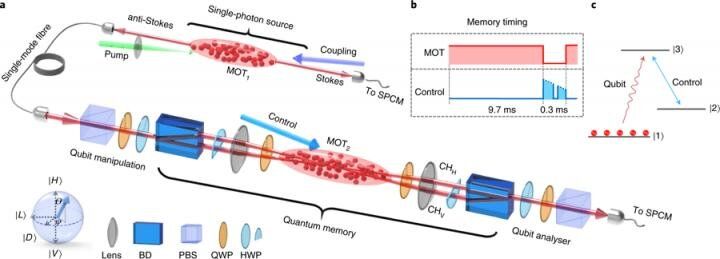Like memory in conventional computers, quantum memory components are essential for quantum computers—a new generation of data processors that exploit quantum mechanics and can overcome the limitations of classical computers. With their potent computational power, quantum computers may push the boundaries of fundamental science to create new drugs, explain cosmological mysteries, or enhance accuracy of forecasts and optimization plans. Quantum computers are expected to be much faster and more powerful than their traditional counterparts as information is calculated in qubits, which, unlike the bits used in classical computers, can represent both zero and one in a simultaneous superstate.
Photonic quantum memory allows for the storage and retrieval of flying single-photon quantum states. However, production of such highly efficient quantum memory remains a major challenge as it requires a perfectly matched photon-matter quantum interface. Meanwhile, the energy of a single photon is too weak and can be easily lost into the noisy sea of stray light background. For a long time, these problems suppressed quantum memory efficiencies to below 50 percent—a threshold value crucial for practical applications.
Now, for the first time, a joint research team led by Prof. Du Shengwang from HKUST, Prof. Zhang Shanchao from SCNU, Prof. Yan Hui from SCNU and Prof. Zhu Shi-Liang from SCNU and Nanjing University has found a way to boost the efficiency of photonic quantum memory to over 85 percent with a fidelity of over 99 percent.
